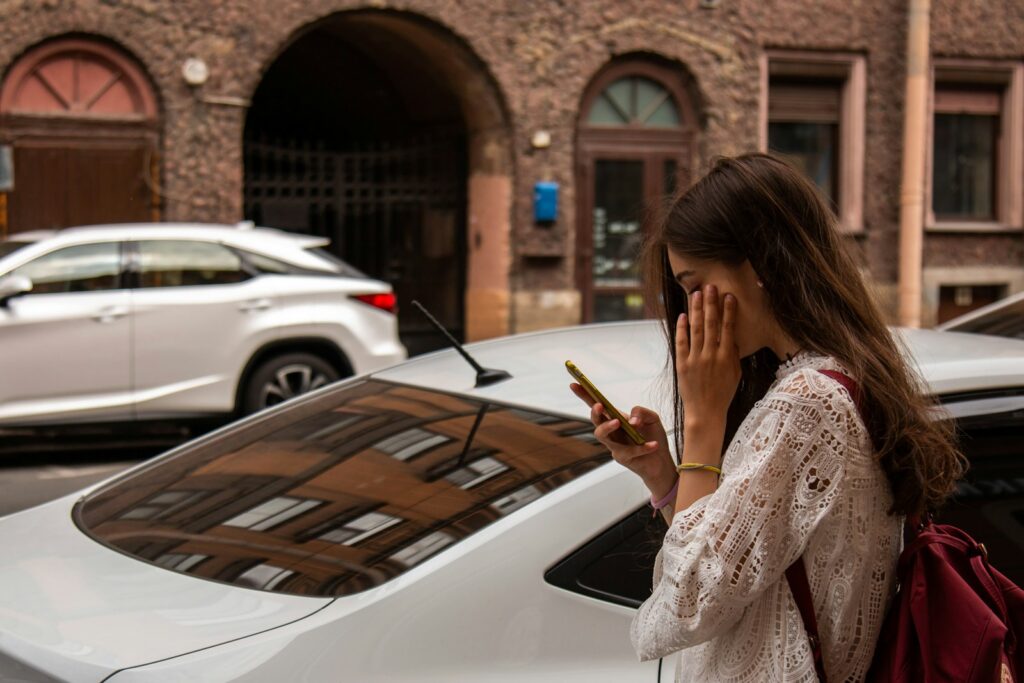
In today’s hyper-connected world, Generation Z stands out as the most digitally immersed group to date, with social media platforms at their fingertips, and communication happening at lightning speed.
Yet, paradoxically, they are also labeled the least social generation. This tragic irony points to a deeper reality where virtual interactions often overshadow genuine human connections, raising the question: why is the most connected generation feeling this profound sense of disconnection?
Many analysts, social scientists, and mental health professionals have started to explore this phenomenon, shedding light on how social media, while facilitating communication, has simultaneously eroded the quality of social interactions for Gen Z.
Rise of shallow interactions
With the rise of social media platforms like Instagram, Snapchat, and TikTok, the way young people communicate has transformed into something vastly different from previous generations. Instead of genuine social connection, interactions are often limited to brief comments, likes, and emojis. The digital landscape creates an illusion of community, yet many young people report feelings of loneliness and isolation amidst this constant connectivity.
According to studies performed by Stanford, increased social media usage correlates with higher rates of anxiety and depression among Gen Z “A systematic review found that the use of social networking sites is associated with an increased risk of depression, anxiety, and psychological distress”. The pressure to portray a perfect life online often leads to feelings of inadequacy, creating barriers to authentic relationships. As Gen Zers scroll through curated images and highlights of others’ lives, many in this generation may find themselves questioning their worth and capability of forming real connections.
However, the issue of social disconnection for Gen Z goes beyond just the influence of social media. The COVID-19 pandemic acted as a catalyst, further weakening in-person social interactions during a crucial developmental period for many young people.
The COVID-19 factor
For Gen Z, the COVID-19 pandemic coincided with formative years of social development, middle school, high school, and college. With schools transitioning to remote learning, extracurricular activities canceled, and social gatherings being discouraged, many young people spent months, or even years, in isolation. Their primary means of interaction shifted almost entirely online, reinforcing habits of digital communication while simultaneously stunting their ability to engage in real-world socialisation.
The long-term consequences of this forced isolation are still unfolding, but early data suggests that many young people struggle with social anxiety, difficulty initiating conversations, and discomfort in face-to-face settings. This unprecedented period of detachment from real-world interactions only intensified Gen Z’s dependence on social media and digital communication, deepening the very problem of social disconnection they were already facing.

The luddite movement
In an unorthodox turn of events, a growing subset of Gen Z is actively rejecting this digital norm. Inspired by a desire for authenticity, some teens are taking steps back from smartphones and social media, harkening back to a simpler era. An article published by The New York Times recently highlighted this “luddite” movement, showcasing teenagers who have traded their iPhones and Instagram accounts for basic flip phones in seeking to reclaim meaningful interaction and real-world relationships. “When I got my flip phone, things instantly changed,” ….“I started using my brain. It made me observe myself as a person. I’ve been trying to write a book, too. It’s like 12 pages now”, says Lola, a member of the Luddites group at Beacon High School.
These young people argue that the constant distraction and pressure from social media led to feelings of disconnection and anxiety. By reverting to more basic forms of communication, they aim to strengthen their interpersonal relationships. They make a conscious choice to prioritise direct conversations, shared experiences, and face-to-face interactions over virtual engagements.
I spoke with another group of Gen Z students who have also opted for a social media free life. “I realised social media was a background of time that was disappearing, it’s made to have you waste time.” says Alex, 19, an NYU student. “I had to get off of social media to not feel that way and feel more productive, I always knew it was detrimental, but it was a sudden decision to get off it” he adds. For many in this growing movement, stepping away from social media isn’t just about productivity, its about reclaiming their mental well-being.
Kovid, a 20-year-old NYU student, has never had social media in his life. While many of his peers have grown up documenting their lives online, Kovid has remained disconnected from this digital culture. “I’ve never felt the need to be on social media,” he says. “I see my friends constantly worrying about how many likes they get or curating a perfect image, and I just don’t relate to that. Instead, I spend my time on real-life conversations, reading, and hobbies that actually make me feel fulfilled.”
Kovid believes his choice has significantly impacted his mental health for the better. “I don’t feel that pressure to compare myself to others. I can just be myself without thinking about how I’m being perceived online. It’s liberating.” He also notes that his social interactions feel more genuine because they aren’t filtered through a screen. “When I meet people, we actually talk. It’s just real, human connection.”

Jean Claude Goldstein, a technology analyst, believes Gen Z’s upbringing in the digital world has fundamentally altered their social development. “Gen Z is the first generation to be fully raised online, and that has rewired the way they perceive relationships, identity, and even reality itself,” he explains. “Unlike previous generations who had to navigate the world through direct interactions, Gen Z has always had an online buffer, whether that’s through texting, social media, or digital personas. This changes not just how they communicate but also how they form and maintain relationships. The downside is that many are struggling to translate those digital connections into meaningful, real-world interactions.”
Goldstein warns that unless a conscious effort is made to balance digital and real-life interactions, social skills could continue to erode. “We’re already seeing the effects, higher rates of loneliness, anxiety, and a hesitancy to engage in face-to-face conversation. If this trend continues, we may have to rethink the very nature of human connection in a digital age.”
A ripple effect on mental health
The impact of social media on mental health is undeniable, particularly for Gen Z. Reports consistently indicate that this generation exhibits higher levels of stress and mental health struggles, often rooted in the need for online validation. The pressure to look perfect online and to achieve milestones as painted by social media can create a toxic cycle, intensifying feelings of loneliness, isolation, and social anxiety. As more research highlights the negative effects of excessive digital engagement, it becomes increasingly clear that a balance must be struck between online and offline life. The constant exposure to curated realities and unrealistic expectations leaves many young people feeling inadequate and disconnected. Additionally, the addictive nature of social media platforms, designed to maximize engagement, often leads to compulsive use, making it difficult for individuals to disconnect even when they recognize the harm it causes.
However, awareness is growing, and initiatives to mitigate these effects are emerging. Schools, parents, and mental health advocates are pushing for digital literacy education, promoting responsible social media use, and encouraging in-person interactions. The rise of digital detox movements, including Gen Z’s embrace of the Luddite lifestyle, reflects a broader recognition of the importance of real-world connections. By encouraging self-awareness and setting boundaries with technology, Gen Z has the opportunity to redefine their relationship with social media and reclaim a sense of authentic human connection.
Ultimately, while social media is an integral part of modern life, it is crucial to acknowledge and address its impact on mental well-being. Moving forward, a collective effort is needed to ensure that digital tools serve as a means of enhancing, rather than diminishing, genuine social interactions and emotional resilience.
As more young people begin to recognize the emotional toll of social media, the shift away from digital reliance could represent a turning point for Gen Z. Whether through the Luddite movement or individual choices like Kovid’s, the conscious rejection of social media in favor of real-life engagement could offer a path toward reclaiming authentic human connection in an increasingly disconnected world.
